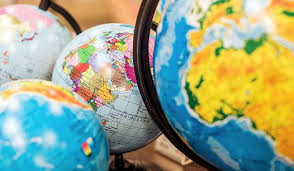Home » Course Layouts » Free Course Layout Udemy
Study A-Level Geography from home – your route to academic success-This new A Level course has been updated to meet the latest academic specifications, so you can feel confident you are studying the most up-to-date academic content.
0
English
English [CC]
PRIVATE
- Learn basic syntax that can apply to any language.
- Learn what is a programming language and the basic concepts for beginners.
- Understand what is Javascript in it's truest form.
- Know the basic syntax of Javascript.
- Know some hidden quirks in Javascript.
Description
Course Overview
 Studying A Levels with us lets you choose when you take your exams so that you are always fully prepared. A convenient and stress-free way to study that fits around your existing commitments.
You will be responsible for booking your exams. We can help you to find your nearest exam centre. You can contact us for help with this whenever you are ready.
Simply receive your course materials online or by post and start studying to gain that all-important A-Level.
On this course, you will be able to:
Studying A Levels with us lets you choose when you take your exams so that you are always fully prepared. A convenient and stress-free way to study that fits around your existing commitments.
You will be responsible for booking your exams. We can help you to find your nearest exam centre. You can contact us for help with this whenever you are ready.
Simply receive your course materials online or by post and start studying to gain that all-important A-Level.
On this course, you will be able to:
- Gain up to 56 UCAS points to help you land your dream place at university
- Study at your own pace with no strict deadlines to contend with
- Develop your knowledge of natural hazards including earthquakes, volcanoes and tsunamis
- Explore globalisation, the water cycle, human rights and much more!
Course Overview
- Volcanoes Earthquakes
- Tsunami
- The Earths internal structure
- Plate tectonic theory
- Continental drift
- Palaeomagnetism
- Plate Boundaries
- MEDCs and LEDCs
- Tectonic
- Mega-disasters
- Prediction and forecasting
- Hazard management
- Climate change
- Volcanic Eruptions
- The Cryosphere Ice masses
- Periglacial Processes
- Periglacial
- Landforms
- Tundra
- Glacial mass balance
- Glacier Movement
- Rate of movement
- Glacial erosion
- Glacial transportation
- Glacial Deposition
- Formation of lowland depositional features
- Fluvioglacial landforms
- Proglacial features
- The influence of technology
- International political and economic organisations
- Special economic zones
- Benefits of SEZs KOF Index
- Transnational corporations (TNCs)
- The global shift Push and pull factors
- International migration
- A global culture
- Cultural erosion
- Gross domestic product
- Social measures of development
- Effects of globalisation
- Retention of cultural values
- Fairtrade
- Ethical consumption schemes
- Recycling
- Economies Places change
- Reasons for change
- Measuring change
- National & regional influences
- Global and International influences
- The negative multiplier effect Media sources
- Representations of place
- Infrastructure investment
- North-South divide
- Planning policies
- Government policy
- Local interest groups
- Rebranding
- Regeneration strategies
- The living environment
- Hydrological cycle Water stores
- Types of precipitation
- A Tropical Rainforest: The Amazon
- Water budget
- River regimes Storm
- Hydrograph
- Urbanisation
- Drought The ecological impact
- Flooding The water cycle and climate change
- Rising demand and diminishing supply
- Physical and economic scarcity
- Water conflicts and the future Techno-fix
- Sustainable schemes
- The biogeochemical carbon cycle
- Human Effects
- Carbon Budgets
- Carbon sequestration in oceans
- Thermohaline circulation
- Terrestrial sequestration
- The greenhouse effect
- The Greenhouse Effect and Climate Change
- The concentration of carbon
- Photosynthesis
- Energy consumption
- Fossil fuels
- Biofuels
- Economic power
- Military power
- Political power
- Cultural power
- Natural resources
- Demographics
- Hard Power vs Soft Power
- Types of polarity
- Geopolitical polarity and stability
- Emerging nations
- Strengths and weaknesses
- The role of TNCs Global action
- International alliances Arctic oil and gas
- Intellectual property
- Political spheres of influence
- Conflicts in the Middle East
- Importance of China and India Economic problems
- Human development
- Happy planet index
- Sharia Law
- Bolivia under Evo
- Morales Goals of development
- The importance of education
- UNESCO health & life expectancy
- The importance of IGOs
- Millennium
- Development Goals
- Human Rights
- The transition to democracy
- Levels of political corruption
- Equality Geopolitical interventions
- Short-term responses
- Just War Theory
- The effectiveness of development aid
- Recent military interventions
- The cost of inaction
ASSESSMENT
To achieve the full Geography A Level qualification you will be assessed across the above areas of study. All topics will be assessed by three paper-based examinations and coursework. You will be responsible for booking your exams. We can help you to find your nearest exam centre and we have 7 recommended exam centres across the country. You can contact us for help with this whenever you are ready. A more detailed breakdown of the assessment details is provided below: Paper 1: 9GE0/01- Type: Written examination
- Duration: 2 hours and 15 minutes
- Weighing: 30% of A Level
- Total Marks: 105
- Assessed: Areas of study 1 and 3
- Assessment format: A mixture of short answers, open response and resource linked questions. You will also have to complete a 12 and 20 mark extended writing question
- Type: Written examination
- Duration: 2 hours and 15 minutes
- Weighing: 30% of A Level
- Total Marks: 105
- Assessed: Areas of study 2 and 4
- Assessment format: A mixture of short answers, open response and resource linked questions. You will also have to complete a 12 and 20 mark extended writing question
- Type: Written examination
- Duration: 2 hours and 15 minutes
- Weighing: 20% of A Level
- Total Marks: 70
- Assessed: Content from all areas of study
- Assessment format: A mixture of short answers, open response and resource linked questions. You will also have to complete an 8, 18 and 24 mark extended writing question
- Type: Coursework/Fieldwork
- Weighing: 20% of A Level
- Total Marks: 70
- Assessed: Define a question of issue for investigation relating to the content in the course using your own research from fieldwork
- Assessment format: A written investigation report of 3000 – 4000 words which is internally assessed at your chosen examination centre and externally moderated. You must complete a minimum of four days of fieldwork, which will be taken under supervision.
COURSE DURATION
You will have 2 years to complete the full A-Level from the date you receive your materials. You will be able to study at your own pace and in your own time without the pressure of tight deadlines.STUDY METHOD
This course enables you to study for an A-Level in Geography by distance learning at home or at work. Your course materials will be sent by post or online. Full tutor support will be available via email, so help is only a click away! Your course will include self-assessment exercises and tutor-marked study questions, so you can monitor your progress.COURSE OUTCOMES
Upon successful completion of this home learning course, you will receive an A-Level in Geography issued by Edexcel.Course content
-
- AREA OF STUDY 1: DYNAMIC LANDSCAPES TOPIC 1: TECTONIC PROCESSES AND HAZARDS 3 months
-
- TOPIC 2: GLACIATED LANDSCAPES AND CHANGE 3 months
- AREA OF STUDY 2: DYNAMIC PLACES TOPIC 3: GLOBALISATION 3 months
- AREA OF STUDY 3: PHYSICAL SYSTEMS AND SUSTAINABILITY TOPIC 5: THE WATER CYCLE AND WATER INSECURITY 3 months
- AREA OF STUDY 4: HUMAN SYSTEMS AND GEOPOLITICS TOPIC 7: SUPERPOWERS 3 months
N.A
- 5 stars0
- 4 stars0
- 3 stars0
- 2 stars0
- 1 stars0
No Reviews found for this course.
Instructor
Open Study College
0
0
0
34
Explore Free Courses
Access valuable knowledge without any cost.
{"title":"","show_title":"0","post_type":"course","taxonomy":"course-cat","term":"engineering-skills,health-and-safety","post_ids":"","course_style":"free","featured_style":"course6","masonry":"","grid_columns":"clear4 col-md-3","column_width":"268","gutter":"30","grid_number":"4","infinite":"","pagination":"","grid_excerpt_length":"20","grid_link":"1","grid_search":"0","course_type":"","css_class":"","container_css":"","custom_css":""}










